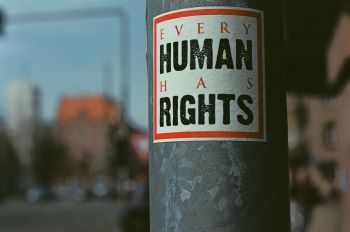From Atsumi & Sakai
Following on from the previous article on the European Union (EU) and the UK, we will be looking at US regulations regarding business and human rights.
In the United States, there is no law at the federal level that requires the implementation of human rights due diligence (as of August 2024. At the state level, the California Transparency in Supply Chains Act was enacted in 2012), but companies are indirectly encouraged to respect human rights through trade restrictions and economic sanctions against countries and products involved in human rights violations, as well as public procurement regulations. If these regulations are enforced, they can completely block transactions, which can have a significant impact on business performance. Due to space constraints, this article will only cover the main points, but will touch on the main regulations in order.
Import Restrictions
First, regarding import restrictions, Section 307 of the Tariff Act of 1930 prohibits the importation into the United States of goods that have been mined, produced or manufactured in a foreign country using forced labor. In relation to this section, the Uyghur Forced Labor Prevention Act, enacted in 2021, provides that goods manufactured in the Xinjiang Uyghur Autonomous Region or by persons on the Entity List of the Act are presumed to be made using forced labor. In addition, the Countering America’s Adversaries Through Sanctions Act, enacted in 2017, provides that if persons of certain nationalities, such as North Korea, are working in the supply chain, they are presumed to be forced laborers, regardless of the origin of the goods. Therefore, in these cases, imports into the United States are prohibited unless the presumption is overturned by evidence to the contrary.
Export Restrictions
Next, regarding export controls, exports from the United States to entities on the Entity List are restricted by the Export Administration Regulations. In this regard, progress is being made in amending laws and implementing them to take into account the human rights situation in the exporting countries.
Economic sanctions
Regarding economic sanctions, various laws, such as the Global Magnitsky Human Rights Accountability Act, and presidential orders issued based on these laws, place foreign organizations or individuals suspected of having contributed to human rights violations on sanctions lists, freezing their assets in the United States, and prohibiting transactions with them. For example, foreign nationals who make significant contributions to the violation of Hong Kong’s autonomy, foreign financial institutions that have significant transactions with such foreign nationals, and Chinese government officials involved in human rights violations in the Xinjiang Uyghur Autonomous Region are included on the sanctions lists.
Public Procurement Regulations
In addition, the Federal Acquisition Regulations, which regulate public procurement, stipulate prohibitions on businesses and their subcontractors. For example, engaging in human trafficking, using forced labor, depriving workers of identification documents, committing fraudulent acts during hiring, and failing to provide employment contracts are prohibited in government procurement. If businesses and their subcontractors violate these prohibitions, they may be subject to measures such as suspension of payments, termination of contracts, and suspension of eligibility to participate in procurements.
As mentioned above, human rights regulations in the United States are wide-ranging, including export and import restrictions and sanctions. In practice, it has been pointed out that collecting information on regulations (or selecting and choosing information) is difficult, but it is important to comprehensively check the list of products subject to restrictions due to forced labor, etc., mainly from sources published by the U.S. authorities, and to confirm whether there is a risk of human rights violations in the supply chain related to the products your company handles.
*Reprinted from the September 4, 2024 editions of Jiji Express Singapore, Malaysia, Vietnam, Thailand, Indonesia, Europe and the US
Authors
Partner





